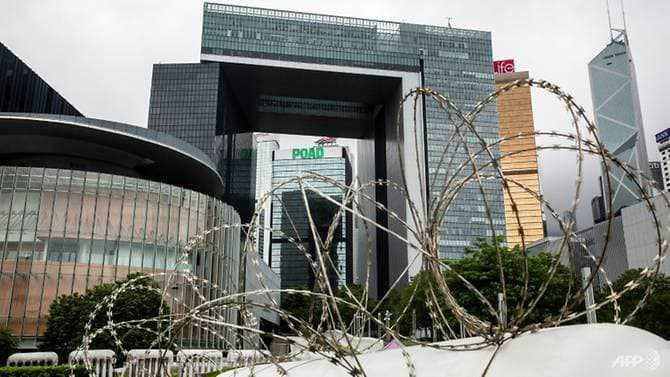Hong Kong security law like 'anti-virus software': Beijing official
09 June, 2020

A sweeping national security law that may soon be imposed on Hong Kong will be "like installing anti-virus software", a top Beijing official said on Monday (Jun 8), in a speech that warned protesters had opted "too much".
The comments by Zhang Xiaoming, deputy director of the Hong Kong and Macau Affairs Office, were the most detailed from a senior party cadre since Beijing announced plans last month to outlaw subversion, secession, terrorism and foreign interference.
His remarks came a day prior to the restless city marks twelve months since huge and frequently violent protests erupted, raging for seven straight months in the most direct challenge to Beijing's rule because the city's 1997 handover.
"Once in force, this law will end up like installing anti-virus software into Hong Kong, with 'One Country, Two Systems' running more safely, smoothly and enduringly," Zhang said, referencing the model by which China allows Hong Kong certain freedoms and autonomy denied to its citizens in the mainland.
Opponents fear the law - which is currently being drafted in Beijing and will bypass Hong Kong's legislature - will bring mainland-style politics to a business hub supposedly guaranteed freedoms and autonomy until 2047.
On the mainland, anti-subversion laws are used to stamp out dissent.
During his speech, Zhang repeated Beijing's assertions that regulations would only target an "extremely few people".
"The opposition camp radical separatists have been mistaking the central government's restraint and forbearance for weakness and timidity," he said. "They have gone too much."
An incredible number of Hong Kongers hit the streets this past year through the months of rallies, the culmination of years of rising fears that Beijing was prematurely eroding the city's freedoms.
But Beijing has portrayed the movement as a plot by foreign powers to destabilise mainland China.
"The opposition camp ... really wants to turn Hong Kong into an independent or semi-independent political entity, a bridgehead for the external powers to oppose China and the Chinese Communist Party and a chess piece which external powers may use to contain China," Zhang said.
During last year's protests, Zhang's office and Chinese state media previously said issues such as a insufficient housing and the high costs of living may have fuelled the unrest.
However in recent months Beijing has instead cast the city's political crisis as a national security threat.
"From my point of view, the key problem in Hong Kong isn't an economical problem, nor a livelihood problem concerning people's housing and employment ... This is a political problem," Zhang said.
The planned law approved by China's parliament in addition has proposed allowing mainland security agents to set up shop in Hong Kong for the very first time.
Zhang dismissed "rumours" they might make arrests and send suspects to the mainland.
"National security organisations need to follow the laws strictly if they are handling cases in mainland China, how is it possible to allow them to become unconstrained in Hong Kong?" he said.
Source:
